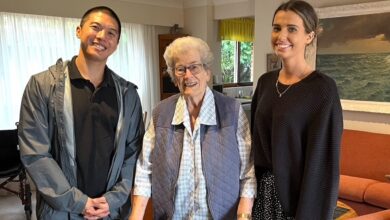Ideology a healthy starting point
There is much Australia can learn from other post-colonial societies when it comes to ‘closing the gap’ in indigenous health, writes Dominic O’Sullivan.
While post-colonial societies like Canada and New Zealand have significantly ‘closed the gap’ in indigenous health, in Australia our indigenous citizens still die on average 20 years earlier.
Many of the clinical variables contributing to poor indigenous health in Australia are well understood and medical research into the field is increasing. However, it is equally important to consider political ideology as a further explanatory variable. People’s ideological beliefs influence the distribution of public authority and resources, the purposes of political activity, equal political participation and cultural responsiveness in the provision of health services – all of which influence health outcomes.
Equal opportunity for good health is a mark of equal moral worth because health protects access to political, economic and social liberties. It is also a matter of democratic fairness that each person should have meaningful, not just theoretical, ability to influence public decisions and demand that public institutions provide cultural respect and group recognition as pre-conditions for individual equality.
The philosopher Norman Daniels’ justification for public investment in health includes the argument that “by keeping people close to normal functioning, healthcare preserves for people the ability to participate in the political, social, and economic life of their society. It sustains them as fully participating citizens”.
Yet, there are numerous examples of inequitable indigenous access to health services. The continued prevalence of trachoma is one of these. Treating the disease that has been eliminated from every first world jurisdiction but Australia is a pressing clinical imperative, but it also highlights the political concern as to what indigenous people might fairly expect from the public health system. Might the prevalence in indigenous communities of trachoma – an otherwise preventable disease – suggest citizens’ rights to healthcare have not been equitably extended?
What, indeed, are the rights of citizenship and how should they be made fairly available to all members of the community? Public answers to these political questions determine the distribution of clinical resources because as Daniels, again, puts it, we can only know what is fair in health if we are guided by a political “theory of healthcare needs [that] must come to grips with two widely held judgments: that there is something especially important about healthcare and that some kinds of healthcare are more important than others”.
The relative moral urgency of some fields of healthcare over others is important in indigenous health. For example, mental health may not be more worthy of public funding, in its own right, than treating sporting injuries acquired through bad luck; but it is uniquely relevant in the indigenous context because, as the psychiatrist Sunil Rege argues, “Aboriginal mental health cannot be separated from its historical context” as “the intergenerational transmission of trauma ... socio-cultural dislocation ... [and] high rates of grief and loss”.
Considered political decisions in health policy and its determinants - housing, education, labour market participation and access to economic resources - reflect the distribution of public authority and judgments made about collective indigenous participation in the policy process. For example, is it reasonable to find particular ways of allowing substantive indigenous engagement in the political process, or are the individual rights of liberal citizenship sufficient to provide fairness to indigenous people? Is the establishment of an indigenous health purchasing agency, as recommended by the National Health and Hospitals Reform Commission in 2009, a measure that the government ought to re-visit? The purchasing agency would have included indigenous members and had responsibility for funding and contracting service providers, including Aboriginal Community Controlled Health Organisations, to offer health services to indigenous people. The process would have been administratively simpler because the agency would have become the single funder, and it would presumably have been more responsive to indigenous needs by institutionalising their involvement in decision-making processes. It would have been an example of indigenous self-determination. However, evaluation of the merits of the idea can never be based on pragmatic criteria alone, as political arguments about claims to self-determination, the relative roles of federal and state governments in health policy and bureaucratic interests in protecting current arrangements retain influence.
Indigenous political claims, including the right to equitable access to culturally responsive healthcare, are historically contextualised. The British settlement of New Zealand, as well as parts of Canada and the United States of America, is distinguished from Australian settlement by the negotiation of treaties with the indigenous populations to set their terms and conditions, and to secure at least the appearance of moral legitimacy for the colonial project. Although the treaties were often one sided and intended only to protect British interests until power could be taken by other means, their protective measures have, more recently, gained recognition in international and domestic law to shape public policy in ways that admit indigenous rights to a particular share in political authority.
For example, New Zealand Maori enjoy guaranteed representation on District Health Boards, which are required to consult Maori in the development of health policies and strategies. By other means, Maori are guaranteed parliamentary representation and there are routinely several Maori ministers in the government. It is, therefore, unlikely to be just a matter of coincidence that Maori health is better than Indigenous Australian. Yet, particular measures to ensure Maori participation in the policy process are more likely to be defended or opposed on political grounds, just as politics, rather than a pragmatic commitment to what works influences indigenous health policy in Australia.
Dr Dominic O’Sullivan is a senior lecturer in political science at Charles Sturt University.
Email: [email protected]





